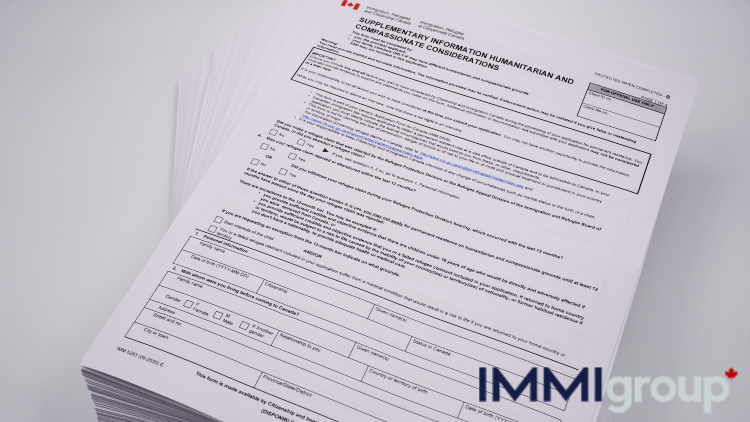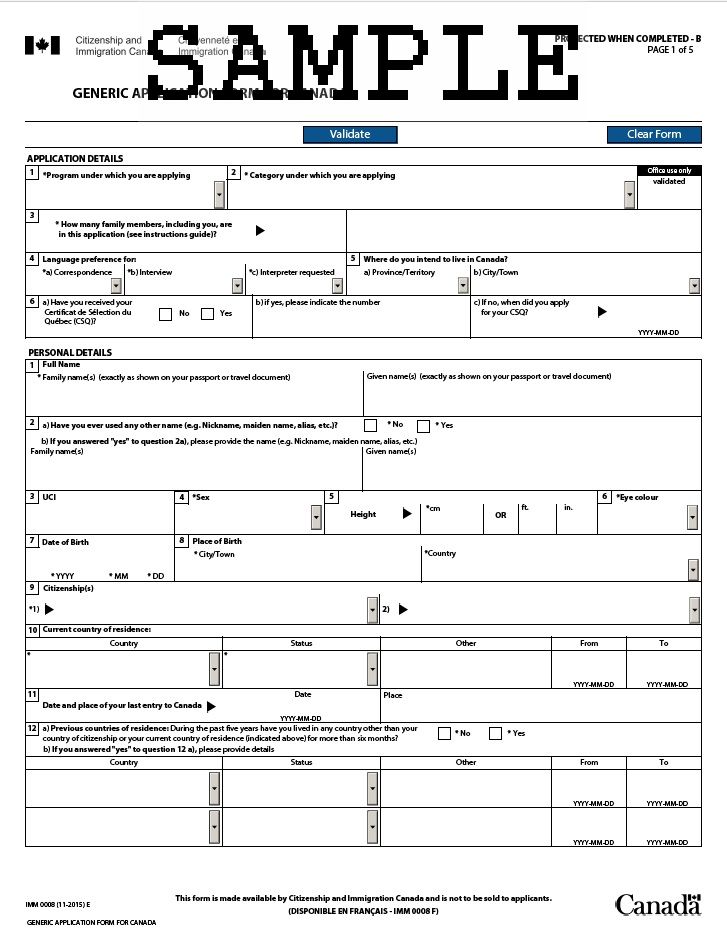How to Apply for Humanitarian and Compassionate Grounds

Your guide to Humanitarian and Compassionate Grounds appeals
Humanitarian and Compassionate Grounds (H&C)
When you apply to Citizenship and Immigration Canada on Humanitarian & Compassionate (H & C) grounds, you are asking CIC officials to make an exception for your particular case, based on any hardship or danger you and/or your children and immediate family members may face if forced to return to your home country or your country of residence. The onus is entirely up to you to prove your case and the discretion to decide your case is entirely up to Canadian immigration officials and the Minister.
Humanitarian & Compassionate consideration, in other words, gives immigration officials the flexibility to grant permanent residence status or a permanent resident visa to specific foreign nationals who would otherwise not qualify as applicants for permanent residence in Canada.
But remember, the objective of Canadian immigration officials is not to override the Immigration & Refugee Protection Act (IRPA) – especially section 25 which specifically refers to Humanitarian & Compassionate grounds – but rather to attain the objectives of the IRPA in a complementary fashion. Canadian immigration officials must decide whether your circumstances are sufficiently compelling to allow for an exemption from standard procedure.
This requires a higher threshold of proof than when immigration officials decide if someone is inadmissible to Canada.
When deciding on the facts of your case – which you are responsible for summarizing and presenting to them in as convincing and truthful manner as possible – they must assess whether it is more likely than not that the evidence you have presented is true. This is called balance of probabilities and it is a tougher standard of proof than reasonable grounds to believe which is the standard used when deciding if someone is inadmissible to Canada.
| Objective | Standard of Proof |
|---|---|
| Fact-Finding: to determine whether refusal of exemption would cause unusual and undeserved or disproportionate hardship | Balance of Probabilities: is it more likely than not that the evidence presented is true? |
| Inadmissibility: to determine whether you are inadmissible to Canada. | Reasonable Grounds to Believe (that you are inadmissible) |
If you are applying from within Canada, then how established you are in Canada will be assessed and taken into consideration. There are no strict policy rules in this regard, but if you can show you are well-established in Canada and that being removed from Canada would cause you undue hardship, you are more likely to succeed. Some of the factors that may be considered are:
- Length of time spent in Canada;
- Work history with stable employment;
- Well managed finances;
- Good cooperation with government authorities;
- Lived in the same community rather than moved around;
- Involvement with community organizations, volunteer groups or other community activities;
- Good civil record in Canada (like you weren’t busted eh?).
whether or not you will be burden to Canadian society. They consider what type of employment opportunities you may have, and what type of support you may have once in Canada. Factors assessed may include:
If you have children, the best interests of the child will be an important but not an overriding consideration on the part of officials. Some factors taken into account may be:
- Age of your child;
- Degree of dependency of your child;
- Degree of your child’s establishment in Canada;
- Links to your home/former country on the part of your child;
- Condition of your home/former country as it would impact your child;
- Any medical issues that may be relevant to your case;
- Your child’s education and how it may be impacted;
- Matters relating to your child’s gender.
Family relations will be given consideration in light of Canada’s Charter of Rights and the International Covenant on Civil & Political Rights (ICCPR). Some factors that may be taken into consideration:
Inadmissibility to Canada may be overcome by the Minister granting you or your family member an exemption from the inadmissibility. Once the immigration official is aware of why you are inadmissible to Canada, he or she will determine whether H&C factors are sufficient to warrant a waiver of inadmissibility. It is helpful to communicate clearly with the immigration authorities any factors that may make you inadmissible so they can then make a determination. Rather than have them discover any possible causes of your inadmissibility during the assessment process. There are several major reasons for inadmissibility:
- Criminal inadmissibility: In the case of previous or current criminal convictions on your part, the immigration officials will consider factors such as:If there are not grounds for a positive decision, they will refuse your application.
- Type of criminal conviction;
- Sentence imposed;
- Length of time since conviction;
- Whether conviction an isolated case or part of a pattern of criminality;
- Any other pertinent information related to the conviction.
- Medical inadmissibility: If the immigration official is informed by you of a medical condition that makes you inadmissible to Canada, or if the official suspects you have such a condition and feels there are H & C grounds for an exemption:
- You will be informed of your medical inadmissibility and given the opportunity to make a submission on H & C grounds.
- You will be requested to submit to a medical exam to confirm your medical condition that makes you inadmissible.
- Your case may be referred to provincial health authorities, who will consider the burden your case places on the health care system in terms of cost; social services you make require; and whether you will be self-supporting despite your medical condition.
- Inadmissibility of Family Members: all your family members – whether they will accompany you to Canada or not – will be checked for admissibility. If any of them prove to be inadmissible, that makes you the principal applicant inadmissible as well. You can request an exemption on H & C grounds, and it may be granted only in exceptional circumstances where the immigration official feels that:
- There is no other solution to your inadmissibility.
- The family member is unavailable to be examined.
- It would be unreasonable to require examination in light of your circumstances.
- Financial inadmissibility: if you are still in receipt of social assistance by the time your application for permanent residence has been processed, then you may be inadmissible to Canada unless H & C considerations require immigration officials to grant you an exemption. You will be given an opportunity to prove that you will soon become financially self-sufficient. This is usually a period of a few months when you will have to show that you are no longer receiving social assistance and are employed. In other words, your rejection as inadmissible may be delayed for a few months on H & C grounds but you will have to find work and go off social assistance within a period of a few months, in most cases.
How to Apply:
In Canada for Permanent Residence
- Fill out IMM 5283: Supplementary Information Humanitarian and Compassionate Considerations. This is where you detail the reasons that you should be granted an exemption despite your inadmissibility to Canada.
- Fill out IMM 0008: General Application Form for Canada. This is your application for permanent residence which must accompany your request for an exemption (IMM 5283), along with the following additional forms:
- IMM 0008DEP: Additional Dependents Form (if applicable);
- IMM 5406: Additional Family Information;
- IMM 5476: Use of a Representative (if applicable);
- IMM 5475: Authority to Release Personal Information to a Designated Individual (if applicable in the case of your using a representative);
- Go here for a Document Checklist – Humanitarian And Compassionate Considerations.
How to Apply From Abroad
- Apply using the appropriate application form, under one of the following classes:
- Family class
- Economic class
- Refugee class
- Include a written letter, detailing why you should be granted an exemption under H & C grounds
You may NOT request an exemption for consideration under H & C grounds if you have:
- Engaged in espionage, subversion, & terrorism;
- Have committed crimes against humanity and/or other international human rights violations;
- Engaged in organized criminal activity.
